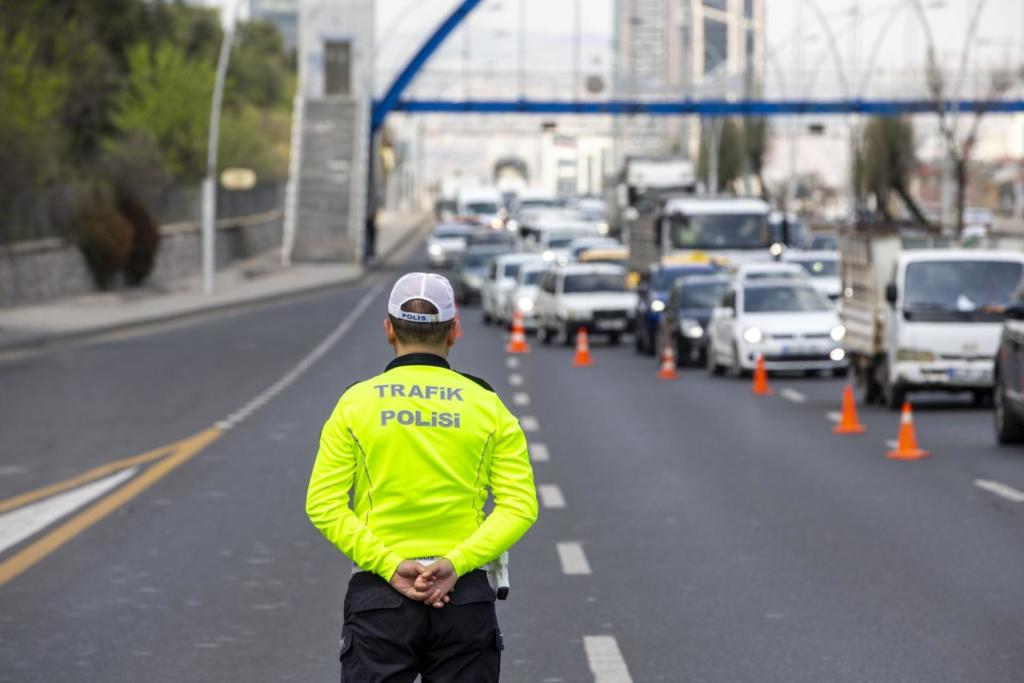Türkiye has taken a significant step into the future of road safety and traffic enforcement. In 2025, sweeping changes have been introduced across the country with a heavy focus on AI-powered radars, real-time fines, and strict penalties. These developments aim to reduce accidents, improve traffic discipline, and bring modern technology into everyday transport management.
Here’s what every driver should know about the new traffic regulations in Türkiye — and how services like Radarsan can help you stay informed and avoid costly mistakes.
🚨 AI-Powered Enforcement: Introducing Radarsan’s Trafidar
Radarsan, a Turkish company, has developed Trafidar—a state-of-the-art AI-driven traffic enforcement system. This technology not only measures vehicle speed but also detects a range of violations, including seatbelt non-compliance and improper lane usage. Operating efficiently both day and night, Trafidar processes radar and camera data automatically, providing real-time results to operators.
The Turkish government has rolled out AI-based radar systems capable of:
-
Identifying speed violations in real-time
-
Detecting mobile phone use while driving
-
Recognizing seatbelt violations
-
Flagging unauthorized lane changes and aggressive driving
-
Tracking expired inspections or insurance via license plate recognition
These AI radars are now integrated into a national network, meaning even small infractions are instantly registered and processed — leaving virtually no room for error or evasion.
Instant Fines: No Warning, Just Payment
One of the most talked-about changes is the real-time issuance of fines. Once an AI radar detects a violation, the fine is immediately recorded and sent digitally to the driver’s e-Government (e-Devlet) account. Notifications are also being sent via SMS and email, depending on the user’s preferences.
No more waiting days or weeks for a notice — violations are now met with instant penalties, and failure to pay within the deadline can lead to increased fines, license points, and even temporary suspension of vehicle use.
In 2025, Türkiye implemented a significant increase in traffic fines, with penalties rising by 43.93% to reflect the revaluation rate determined by the Ministry of Treasury and Finance. These adjustments aim to deter violations and promote safer driving habits.
Key Penalties Include:
-
Unauthorized Use of Flashing Lights or Sirens:
-
First Offense: ₺138,172 (~$3,906)
-
Repeat Offense: ₺276,345 (~$7,813)
-
-
Speeding Violations:
-
Exceeding Speed Limit by 10-30%: ₺2,168
-
Exceeding Speed Limit by 30-50%: ₺4,512
-
Exceeding Speed Limit by More Than 50%: ₺9,268
-
-
Drunk Driving:
-
Fine: ₺50,000 (~$1,371)
-
License Suspension: 1 year
-
Possible Jail Time: 36 to 144 days
-
-
Driving Without a License:
-
Fine: ₺40,000 (~$1,097)
-
-
Using a Mobile Phone While Driving:
-
Fine: ₺2,723
-
-
Pedestrian Crossing Violations:
-
Fine: ₺2,134
-
-
Drifting or Spinning in Public Areas:
-
Fine: ₺20,932
-
Vehicle Impoundment
-
✈️ New Aviation Regulation: Stay Seated Until the Plane Stops
Beyond road traffic, Türkiye’s Directorate General of Civil Aviation has introduced a regulation targeting airline passengers who unbuckle, stand, or access overhead compartments before the aircraft has safely parked and the seatbelt sign has been turned off. Violators face an on-the-spot fine of ₺2,603 (~$67). This measure aims to enhance passenger safety and ensure orderly disembarkation.
📲 Enforcement and Payment
With the integration of AI systems like Trafidar, traffic violations are detected swiftly, especially in urban areas. Offenders receive notifications via mail and can also view their violations through e-Government platforms and relevant mobile applications. Payments can be made online, streamlining the process and ensuring timely compliance.
🛡️ Conclusion
Türkiye’s commitment to road safety is evident in its adoption of advanced technologies and the imposition of stricter penalties. By leveraging AI-driven systems like Radarsan’s Trafidar and updating traffic fines, the country aims to reduce accidents and foster a culture of responsible driving.
Note: All fine amounts are based on the latest available data as of 2025 and are subject to change. Drivers are encouraged to stay informed about current regulations and penalties.

 English
English










